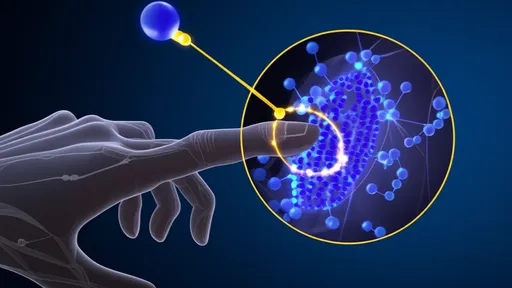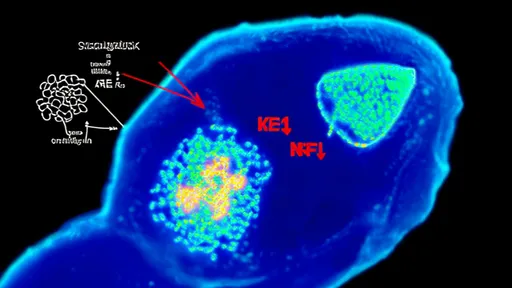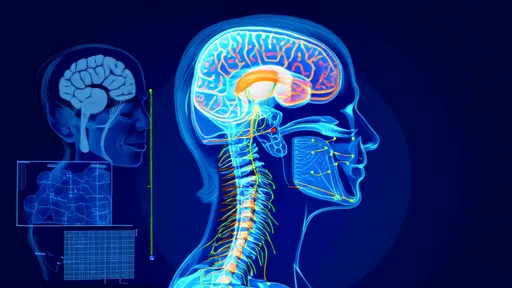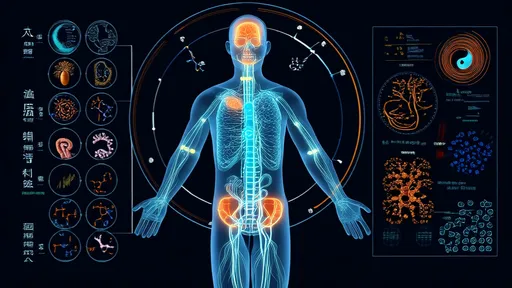For individuals following a plant-based diet, ensuring adequate intake of essential fatty acids, particularly omega-3s, has long been a topic of discussion. Unlike their omnivorous counterparts, vegetarians and vegans rely on alpha-linolenic acid (ALA), a plant-derived omega-3 fatty acid found in flaxseeds, chia seeds, walnuts, and hemp seeds. The challenge, however, lies in the body's ability to convert ALA into the more bioactive forms—eicosapentaenoic acid (EPA) and docosahexaenoic acid (DHA)—which are critical for brain function, cardiovascular health, and inflammation regulation.
The conversion process of ALA to EPA and DHA is notoriously inefficient in humans, with estimates suggesting rates as low as 5-10% for EPA and less than 5% for DHA. This has led to concerns about whether plant-based diets can sufficiently meet omega-3 requirements. However, emerging research indicates that certain dietary and lifestyle strategies can significantly enhance this conversion, offering promising solutions for vegetarians and vegans.
Understanding the Conversion Pathway
The conversion of ALA to EPA and DHA occurs primarily in the liver, mediated by a series of enzymatic reactions involving desaturases and elongases. Genetic variations, dietary composition, and overall health status can influence the efficiency of these enzymes. For instance, polymorphisms in the FADS1 and FADS2 genes can reduce conversion rates, making some individuals more reliant on pre-formed EPA and DHA from animal sources. However, this doesn’t mean plant-based diets are inherently deficient—it simply means optimization is key.
Dietary Strategies to Boost Conversion
One of the most effective ways to enhance ALA conversion is by reducing the intake of omega-6 fatty acids, which compete for the same enzymes. The modern diet, often rich in soybean oil, corn oil, and processed foods, tends to have an imbalanced omega-6 to omega-3 ratio, sometimes as high as 20:1. By minimizing omega-6 intake and increasing ALA-rich foods, the enzymes can prioritize omega-3 conversion. Replacing processed oils with olive oil or avocado oil, and incorporating whole food sources of omega-3s, can make a measurable difference.
Another strategy involves ensuring adequate intake of cofactors that support enzymatic activity. Magnesium, zinc, and vitamins B6 and B7 (biotin) play crucial roles in the conversion process. A diet abundant in leafy greens, nuts, seeds, and legumes can provide these nutrients naturally. Additionally, some studies suggest that polyphenols found in berries, green tea, and dark chocolate may further support omega-3 metabolism by reducing oxidative stress and inflammation.
The Role of Gut Health
A healthy gut microbiome may also influence omega-3 conversion. Certain gut bacteria produce short-chain fatty acids (SCFAs) that can modulate inflammation and improve metabolic efficiency. Fermented foods like sauerkraut, kimchi, and tempeh, as well as prebiotic fibers from garlic, onions, and asparagus, can foster a beneficial microbial environment. Preliminary research even suggests that probiotics, particularly strains of Lactobacillus and Bifidobacterium, might enhance the bioavailability of omega-3s, though more studies are needed to confirm this effect.
Lifestyle Factors Matter
Beyond diet, lifestyle choices can impact omega-3 conversion. Chronic stress and elevated cortisol levels have been shown to impair enzymatic activity, while regular physical activity may enhance it. Engaging in stress-reducing practices like meditation, yoga, or even moderate exercise can create a more favorable internal environment for omega-3 metabolism. Sleep quality is another often-overlooked factor; poor sleep disrupts metabolic pathways, potentially hindering conversion efficiency.
Supplementation as a Practical Option
For those who struggle with conversion despite dietary adjustments, algae-based omega-3 supplements offer a direct source of EPA and DHA. Algae is the original source of these fatty acids in the marine food chain, making it a sustainable and vegan-friendly option. Studies have shown that algae oil supplements can raise blood levels of EPA and DHA comparably to fish oil, providing a viable alternative for plant-based eaters.
While the conversation around omega-3s often centers on fish and seafood, it’s clear that vegetarians and vegans have multiple pathways to optimize their status. By focusing on a balanced diet, mindful lifestyle choices, and targeted supplementation when necessary, plant-based individuals can confidently meet their omega-3 needs without compromising their dietary principles.

By /Jul 14, 2025

By /Jul 14, 2025

By /Jul 14, 2025

By /Jul 14, 2025

By /Jul 14, 2025

By /Jul 14, 2025

By /Jul 14, 2025

By /Jul 14, 2025

By /Jul 14, 2025

By /Jul 14, 2025

By /Jul 14, 2025

By /Jul 14, 2025

By /Jul 14, 2025

By /Jul 14, 2025

By /Jul 14, 2025

By /Jul 14, 2025

By /Jul 14, 2025

By /Jul 14, 2025